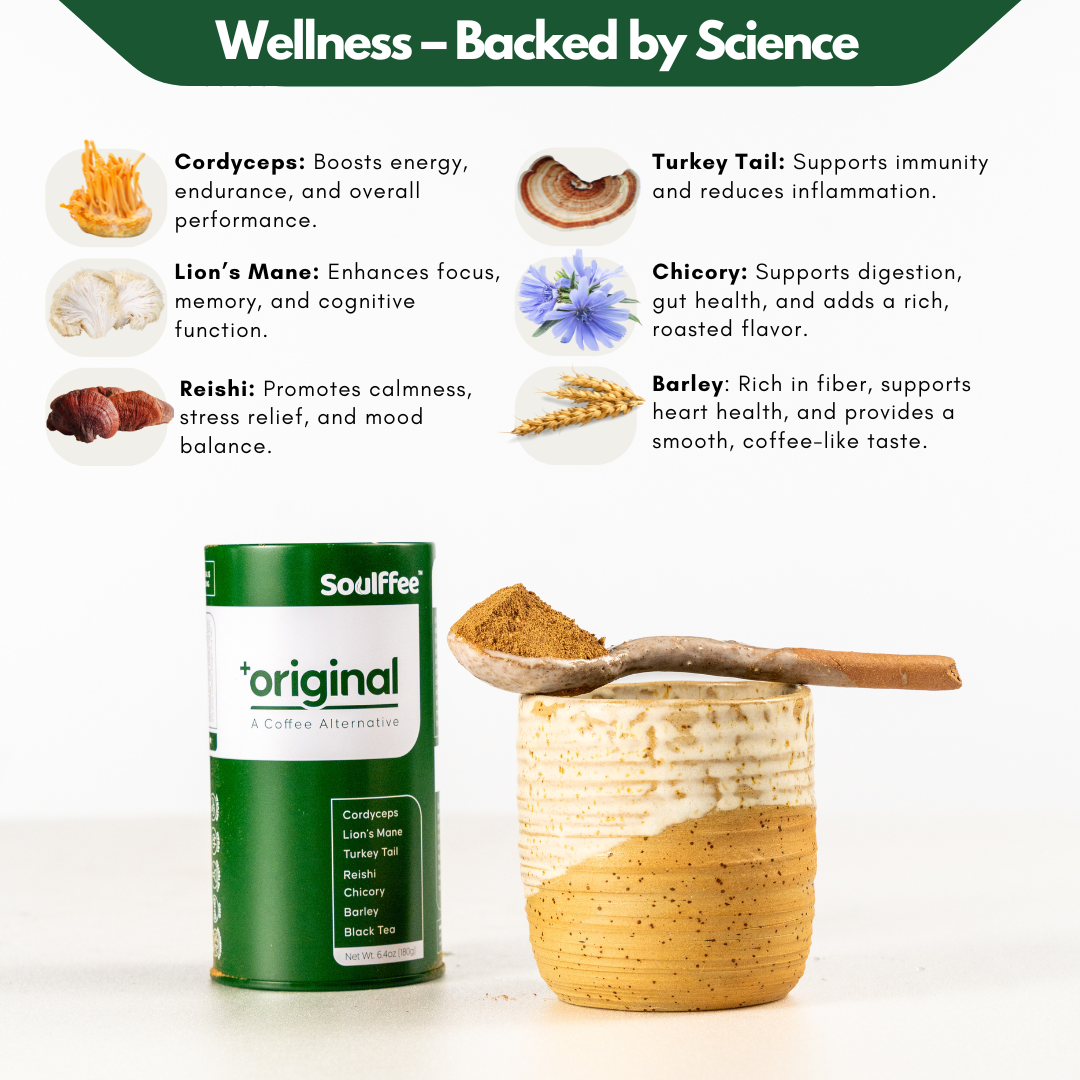Caffeine is a part of life for most of us—whether it’s that morning coffee or an afternoon energy boost. And while it’s not the enemy, it’s important to recognize that caffeine comes with some risks. It’s easy to overdo, and over time, caffeine dependence can take a toll on your health, especially your heart. The good news? You don’t have to give it up entirely, but being aware of how much you’re consuming and knowing when to switch things up can make a big difference.
Let’s talk about why it’s important to stay mindful of your caffeine intake and how making smart changes can protect your health.
Caffeine Isn’t Bad, But It’s Not Without Risk
There’s no denying that caffeine gives us that quick boost of energy and alertness we need. In moderation, caffeine can be helpful—it sharpens focus, improves mood, and can even enhance physical performance. But here’s the catch: caffeine is a stimulant, and too much of it can lead to health issues, especially when it becomes part of your daily routine without limits.
While caffeine isn’t the bad guy, it does carry health risks, particularly when consumed in high amounts over a long period. For example, excessive caffeine can increase your heart rate and raise your blood pressure. This puts added stress on your cardiovascular system, which isn’t ideal for heart health.
Why You Need to Be Aware of Caffeine Addiction
Here’s the thing about caffeine: it’s addictive. The more you consume, the more your body craves it, and the more you need just to feel “normal.” This dependency can sneak up on you. Before you know it, your one cup a day has turned into four or five, and without that fix, you feel sluggish, irritable, and unfocused.
Caffeine addiction can lead to more serious issues like:
- Heart problems: Caffeine stimulates the heart, increasing your heart rate and blood pressure, which can put strain on your cardiovascular system.
- Anxiety and jitters: Too much caffeine can make you feel anxious, shaky, and unable to focus.
- Disrupted sleep: Caffeine stays in your system for hours, interfering with your sleep and creating a cycle of fatigue and overconsumption.
- Heart palpitations: High doses of caffeine can cause your heart to beat irregularly or faster than normal, which can be especially risky for those with underlying heart conditions.
If these symptoms sound familiar, it’s a sign that it might be time to switch things up.
When to Consider Switching from Caffeine
Switching away from caffeine doesn’t mean you need to give it up completely. Instead, it’s about finding a better balance. Here’s why switching or cutting back can be a game-changer for your health:
-
Protect Your Heart: Reducing your caffeine intake can lower your risk of heart problems, especially if you have high blood pressure or a history of cardiovascular issues.
-
Reduce Stress and Anxiety: By cutting back on caffeine, you’ll likely feel less anxious and more in control of your stress levels. Without the constant ups and downs from caffeine, your mood will feel more stable.
-
Improve Sleep: Less caffeine means better sleep, and better sleep means more natural energy. When you’re well-rested, you won’t need as much caffeine to get through the day.
-
Break the Cycle of Dependency: By slowly reducing your caffeine intake, you can regain control over your energy levels and stop relying on caffeine to feel functional.
Make the Switch: A Healthier Approach to Caffeine
Making the switch doesn’t have to be difficult. If you’re looking to reduce your caffeine consumption but still want that rich, flavorful experience, consider alternatives like Soulffee. It’s a coffee alternative with a fraction of the caffeine content and none of the jittery side effects. Switching to something like Soulffee can help you maintain focus and energy without putting your heart at risk.
It’s all about moderation. Caffeine isn’t the villain, but consuming it mindlessly can lead to long-term health problems that are easy to avoid if you’re aware.
Final Thoughts: Know When to Switch
Caffeine can be part of a healthy lifestyle, but moderation is key. If you’re feeling jittery, anxious, or noticing changes in your heart rate, it’s time to take a closer look at how much caffeine you’re consuming. Switching to alternatives or cutting back on your daily intake can help protect your heart, improve your mental health, and ensure that caffeine doesn’t become something you depend on to get through the day.
Remember, it’s not about giving up caffeine entirely—it’s about knowing when to make the switch for the sake of your health.






Own Your Awareness
Coffee and Gut Health